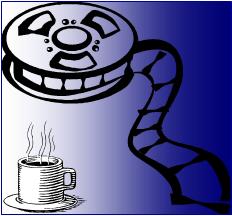

|
 |
Shawshank Redemption
|
Please go to the new Coffee Coaster site implemented more gracefully in Wordpress. This page: http://brianrwright.com/CoffeeCoasterBlog/?p=2352 |
Tim Robbins ... Andy Dufresne
Morgan Freeman ... Ellis Boyd 'Red' Redding
Bob Gunton ... Warden Norton
William Sadler ... Heywood
Clancy Brown ... Captain Hadley
Gil Bellows ... Tommy
Mark Rolston ... Bogs Diamond
James Whitmore ... Brooks Hatlen
Red: [narrating] I have no idea to this day what those two Italian ladies were singing about. [Le nozze di Figaro Sull'aria] Truth is, I don't want to know. Some things are best left unsaid. I'd like to think they were singing about something so beautiful, it can't be expressed in words, and makes your heart ache because of it. I tell you, those voices soared higher and farther than anybody in a gray place dares to dream. It was like some beautiful bird flapped into our drab little cage and made those walls dissolve away, and for the briefest of moments, every last man in Shawshank felt free.
So why didn't Shawshank make #1 at the Oscars in 1995. Because Forrest Gump won everything that year, that's why. But Shawshank, based on a short story by Stephen King, won seven Academy award nominations and deserves to have every accolade of every great and lasting film. What amazes me is how Frank Darabont—who really isn't known for anything this big—could build such a marvelous screenplay and direction on such a small bit of original writing, even if King did write it.
There've been several good and powerful prison films over time, including Paul Newman in Cool Hand Luke, Robert Redford in Brubaker, Steve McQueen in Papillon, Clint Eastwood in Escape from Alcatraz, and many more before and since. [Who can forget the Count of Monte Christo; I like the one with Richard Chamberlain best.] Many of them are based on true stories, and those that aren't are based on true experience.
When you get right down to it, what is "prison" in modern industrial societies, except the extremity of state power. Indeed, if one looks at the state as as a person, prison is its apotheosis, its glorious ideal. The state likes nothing better than to reduce all of humankind to a regimented, Big Brother existence... where you must get permission to tie your shoes, eat your meals, or take a whiz. Where you live in constant anxiety of physical confinement and torture (or death) by psychopathic state officials on the one hand, or, worse, of state-sanctioned-and-enabled physical assault and rape by violent psychopathic inmates on the other.
No point in sugarcoating it. Prisons—particularly prisons in the United States—have next to nothing to do with punishment for real crime, rather next to everything to do with inflicting systematic state aggression upon the disobedient. Disobedient to whom? To the state. And there are few movies that make the true purpose of state "corrections" facilities so evident as The Shawshank Redemption. And the setting is four thru seven decades ago!!! Imagine Prison World now with 40 years of the War on Drugs. Talk about hell holes. How can civilized persons accept such an ongoing atrocity in our midst?
Not only does Shawshank, because of its setting and context, show us the gross evil of the state—and the financial corruption and enrichment of corporate-political criminals that go hand-in-hand with coercive central government (the state)—the film contrasts to that evil the most exalted qualities men can achieve: friendship, intelligence, humor, kindness, reason, hope, and freedom.
And the greatest of these is freedom.
Andy Dufresne (Tim Robbins) is an up-and-coming bank officer in Maine after the War (WW2). He seems to have everything, yet his marriage is falling apart. His wife starts carrying on with a local golf pro. In an opening scene we see Andy inside his car with a pint of whiskey, then with a revolver he stumbles out of the car toward a room where he has followed the couple. The jury doesn't believe his story that he changed his mind, threw the gun away, and went home that night. He is convicted of murder and sentenced to two successive life sentences at Shawshank Prison (played in the movie by Ohio State Reformatory, Mansfield, Ohio).
Red (Morgan Freedman)—also convicted of murder, which was a real crime he committed, of passion and idiocy in his teen life—has been on the inside for thirty years when Andy is marched in. [Freeman well deserves his Academy Award nomination for best actor; he and his voice as narrator are in nearly every frame.] The movie appeals especially to people who have a literary bent, because it consists of Red's story of Andy and of the story of the profound relationship that develops between them in common cause for psychological and, one hopes, physical freedom. The other inmates are well orchestrated, too, especially James Whitmore as Brooks Hatlen.
So many deeply insightful observations grow from the circumstances. And they don't always come from the leading characters. For example, Brooks, an old man, finally receives his parole. When he entered prison there were no automobiles to speak of; now they're everywhere. Everyone in town is pushing and shoving, always in a hurry, usually wanting him to get the heck out of the way. In jail Brooks is someone, in fact the supervisor of the library—that Andy has succeeded in making the best in the whole US prison system (but that's another story)—but out here he's nobody, invisible. Observation: People get used to their cages—whether external or self-imposed.
You can also draw some lessons in life from the warden's conduct, no doubt actor Bob Gunton's finest hour (a breathtaking performance). Naturally, Andy Dufresne is the source of most behavioral insight: he is simply a one-of-a-kind exceptional man of the highest ideals. The evil harshness of prison—and the mindless barbarism and opportunism of the rotten system—serves to distill out all the impurities of character he was addicted to in the past. Andy is a Randian hero: actually better than a Randian hero, because he doesn't start out that way.
Oddly, having seen Shawshank a few times, even closer to the time it came out in the theaters, it's only within the previous few years that I've come to realize how powerful a statement it makes. This is the Libertarian Dream Movie, our ultimate Man against the State declaration... that may be applied as fuel toward removing tyranny from human existence entirely: that Vision Quest world in which, to use a Renaissance metaphor, "the last king is strangled by the entrails of the last priest" (Denis Diderot).
Notice I haven't told you much of the story, and that's good. Because if you're lucky (or unlucky, depending on how you look at it) enough to have not yet seen Shawshank Redemption, it will bring tears to your eyes, grit to your heart, and—okay this is a bit of a let-on—ultimately joy to your core being. The Mozart aria—which believe it or not finds its way, believably, into a prison yard—says it all. You will love this inspiring work of art.
###
2010 August 26
Copyright © Brian Wright | The Coffee Coaster™
Shawshank Redemption | Tim Robbins | Corrections | US Prison Atrocity
 |
||||
| |